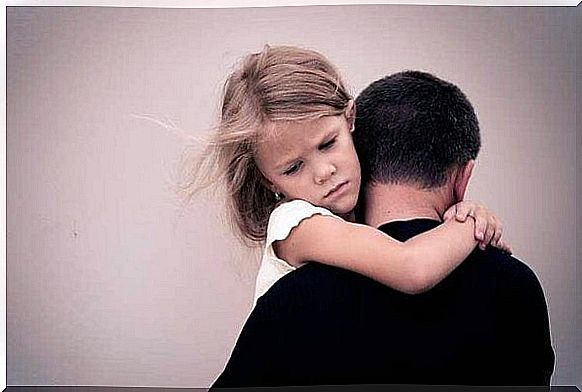Teach Your Child To Tolerate Frustration

It is one of the most unpleasant feelings there is. And at the same time one of the most normal: frustration. You experience frustration when a wish, a dream, a goal or a fantasy can not be achieved, at least not right now – no matter how hard you try. It is the clearest way in which the world makes us realize that it is unfortunately not the fairest place.
We do not want our children to be sad. We do not allow them to experience any kind of frustration in the home. Many times when we play with them, we let them win. Our perception is that if we expose them to these emotional defeats and frustrations, it only gives them a moment of sadness. By letting them win, we try to avoid this sadness.
However, the emotional reactions that are established in childhood shape the majority of a person’s emotional future. H show today we take care of the negative feelings that tomorrow we will reduce the influence of the problems arising from this type of feeling.
Knowing and learning how to deal with negative emotions in childhood, in a safe environment, will help our children to develop a range of coping mechanisms and regulation of their own emotions. This helps them with time to develop emotional maturity.

Why should we learn to tolerate frustration?
Why is it so important to learn to tolerate frustration? F rust ration is one of the most powerful emotions that affect a child’s self-esteem. If we teach them how to tolerate frustration at a young age, children are allowed to begin building a foundation of resilience.
This means that negative emotions associated with frustration will not control their lives. When the time comes to deal with situations that make them question their ability to accomplish things, they will be fully equipped with coping strategies that they have learned from home. Children who have difficulty tolerating frustration often exhibit emotional symptoms such as anxiety or depression. In addition, it is often normal for them to have problems with their behavior, such as being aggressive towards things or people, tantrums, confronting authority divisions and more than anything else refusing to participate in activities that do not give them quick confirmation.
In addition, if children do not develop mechanisms to tolerate frustration while growing up, activities that do not provide quick reward and recognition will become a threat more than a challenge. They often fail in these types of activities and focus more on others who provide a quick reward even when they are dangerous, such as substance abuse.
This does not mean that we should exclude them from facing situations of frustration. At the same time, we should not force them to meet them unnecessarily, just to measure their strength. We simply have to let frustrations come out during family games, sports and other activities. When this happens, be with them in this emotionally uncomfortable moment. Acknowledge and confirm their feeling first. Help them find alternative solutions later.
It is best to let the child take responsibility for developing alternative solutions to the daily problems, at their level of development. We do not have to overcompensate for their mistakes. If we do, we will deprive our children of an important opportunity to work on fundamental skills, such as patience, acceptance, problem solving. It will prevent them from developing strength or creativity.

Steps that teach your child to tolerate frustration
To teach your child to tolerate frustration, the following steps may be helpful:
Be a role model
There is no better way to learn “emotional utterance” than to see parents put into words the emotions that are created out of frustration.
Do not give them everything
If we give our children everything and we do not allow them to face challenges, it is difficult for them to make mistakes and learn from them. Keep in mind that you would not be able to follow them every single day of their lives and prevent them from stumbling.
Respect their time and their ways
Maybe they do things very slowly or badly. It’s their way of growing and learning. You will have to respect their actions. Even if they make mistakes or do not do things the way you would have done them. By doing so, you enable them to experience mistakes as something positive. You help them develop a sense of accomplishment and personal competence. These two things are essential for the development of a solid self-esteem.
Do not give in to their tantrums
But do not ignore or minimize their crying either. Frustrating situations often lead to tantrums, especially in children. If parents give in, children will learn that this is the most effective way to solve problems. On the other hand, crying is a necessary positive answer. Crying on many different occasions is a preliminary step in neutralizing powerlessness. It helps us to be prepared for future lessons.
To turn frustration into a lesson
Situations of difficulty are a great opportunity for the child to learn new things and hold on to them. Frustration is a powerful machine that generates alternatives if we do not surrender to the negative emotions it creates. In this way, they will have the opportunity to face a frustrating situation if it should reappear.
Teach them to be persistent
Perseverance is essential to overcoming difficult situations. If our children learn that perseverance can solve most problems, they will control the frustration in many situations. Endurance does not have to be immediate or very persistent. We can teach them to give it one more try once they have dropped a bit.
Teach them to ask for help when they need it
We do not walk alone in life. You will need to allow them to learn from you. So when you are not present, your children can come up with solutions themselves.
To sum up, frustration can be a positive emotion if handled well. It has a significant motivational value for those who are not overwhelmed by the negative emotions it produces. We all experience frustration to some degree in our lives. Teaching our children about this feeling and its possibilities will help them find success in the future. It allows them to develop better emotional health.









